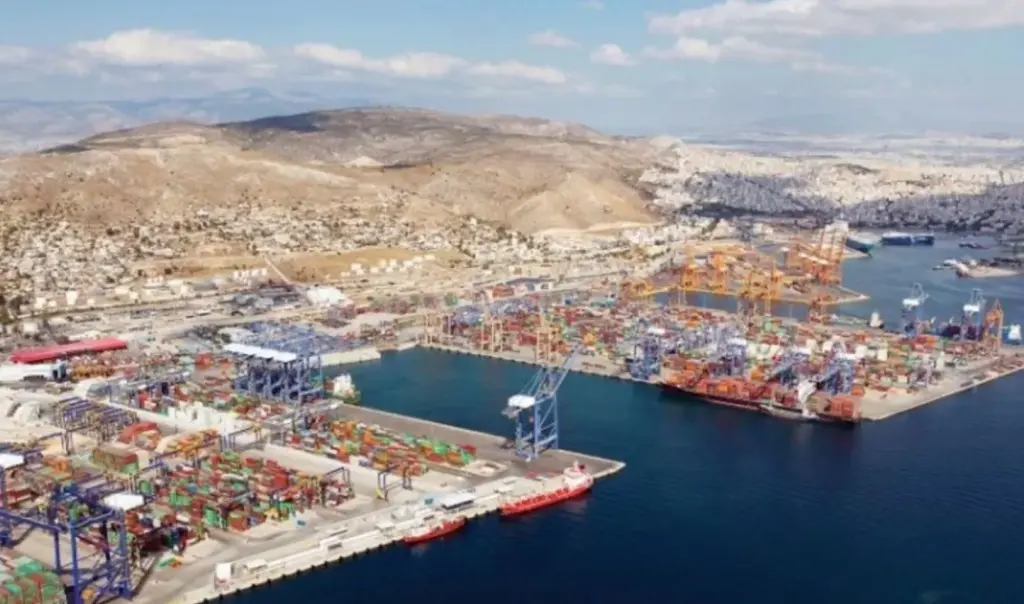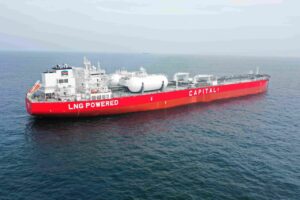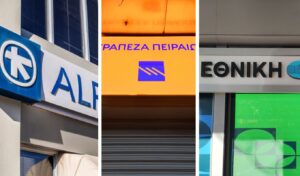The presence today of former Prime Minister Kostas Karamanlis at the 30th anniversary of the Greek-Chinese Chamber of Commerce and his award ceremony, primarily due to the concession of Piraeus Port to Cosco during his administration in 2008, comes at a time that raises many questions. Considering that Karamanlis’s last award ceremony dates back to before Greece’s entry into the bailout programs, these questions multiply.
While the former Prime Minister may have limited himself to institutional interventions since his “retirement” from politics in 2009, emphasizing the real dangers to national issues and the threats from Turkey’s expansionist and revisionist policies, today’s appearance and his recognition by the Greek-Chinese Chamber gives another dimension to this “intervention” in the field of symbolism – and we must not forget that in politics, symbolism plays a pivotal role.
Government announces plan to transform ONEX Port in Elefsina into energy and commercial hub
At the same time, the government announced its intention to transform the ONEX Port in Elefsina into an energy and commercial hub, which would make Elefsina a competitive port in relation to Piraeus Port. And we haven’t even factored in the significant agreements that the Greek government recently achieved with Chevron, ExxonMobil, and Ukraine regarding LNG, which have their own clear geopolitical significance and compass pointing toward the West and America. These agreements significantly upgrade Greece’s role in the Southeast Mediterranean region, especially in a particularly unstable international environment.
Furthermore, this climate generally affects the European Union, which views Chinese investments in Europe with reservation – if not skepticism. It’s no coincidence that since 2023, Europe has expressed its reservations in the most official way, highlighting the risks that exist from Cosco’s investment in Piraeus Port.
European Parliament’s critical study on China
In October 2023, a study was conducted by the Transport and Tourism Committee of the European Parliament.
See HERE the complete study
This study dealt for the first time with Chinese investments in maritime infrastructure through the lens of “de-risking.” The specific study makes detailed reference to the benefits and risks that exist from COSCO’s investment in Piraeus Port. Among other things, the European Parliament study notes in the risks section that the Greek state has not conducted an impact assessment of this investment, nor has it calculated how a crisis in EU-China relations would seriously affect the local economy, even the port’s operation itself. It also notes that COSCO’s proximity to critical political and military infrastructure could create risks even at the cybersecurity level.
European Parliament resolution against China’s influence on EU critical infrastructure
Beyond the risks presented by this specific European Parliament study regarding COSCO’s investment in Piraeus Port, a resolution followed on January 17, 2024, concerning the security and defense implications of China’s influence on critical infrastructure in the European Union.
See HERE the resolution
This specific European Parliament resolution, among other things, notes that espionage risks are higher when Chinese non-military commercial assets are located in logistics hubs near EU and NATO naval bases or port operators. Additionally, the resolution called on member states to urgently address the need to reduce espionage and sabotage risks in critical infrastructure, particularly those with military functions, such as ports used by NATO.
The same resolution also states that ports are gateways to the world and therefore play a crucial role in the EU economy, noting concern that entities under Chinese ownership or control have strategically increased their participation in European ports and port infrastructure.
Indeed, it called on the European Commission to present a strategic EU policy framework for reducing and limiting influence and operational control by China and other regimes.
In this environment of questioning Chinese influence and conflicting interests – Chinese versus Western – what exactly does the nephew of the Nation’s Founder Constantine Karamanlis seek to achieve with his presence and acceptance of this award?




